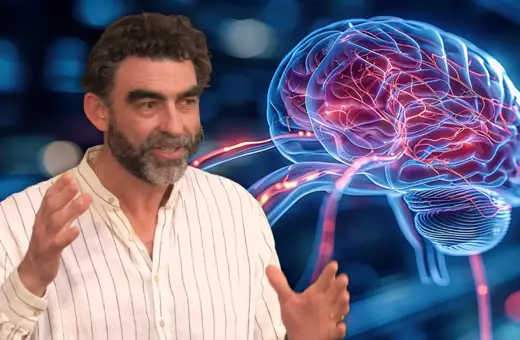We like to believe we’re on the side of reason, that our politics follow from facts, while others are trapped in their blinkered perspective. But what if that’s the greatest illusion of all? In this article, Contributing Editor of IAI News, Omari Edwards, speaks with political philosopher Jason Blakely, who argues that no one escapes their perspective: not policy-makers, not political commentators, not even you. Our beliefs, Blakely contends, are shaped not by truth alone but by deep, often invisible forces: identity, power, fear, and historical accident. Blakely calls for a radical shift: expose ideology wherever it hides, dismantle the myths of neutrality, and build a politics that begins with the admission that everyone is navigating in the dark.
At the heart of Blakely’s latest book, Lost in Ideology, is a deceptively simple claim: ideology is a cultural tradition. We should think of political ideologies the way we think of language, religion, food, or music, as traditions passed down through history, giving shape and meaning to our social world. “We’ve forgotten that ideology is a cultural tradition, similar to language or food or music,” Blakely said, noting that people use ideology as a slur just meaning bad or wrong ideas. However misguided a political viewpoint may seem, it cannot be dismissed as just stupidity or “brain science” gone awry, as some neuroscientists now argue. Every ideology, Blakely insisted, is “a phenomenon, a thing in the world,” a lived tradition that makes sense on its own terms to its adherents.
To illuminate this, Blakely offered a vivid metaphor: ideologies are like maps we use to navigate the political terrain. Humans are meaning-making creatures, and an ideology provides an orienting vision of how society should be. The trouble comes when we confuse the map for the terrain; imagining that our preferred worldview is simply Reality itself, while everyone else’s is a faulty or dangerous distortion. Blakely drew on the story by Argentine writer Jorge Luis Borges, On Exactitude in Science, about an empire so obsessed with cartography that it creates a map the exact size of the territory. Similarly, we often unconsciously treat our own ideological map as if it were the whole world. “We think we don’t have an ideology… we think we just have the geography, and everyone else has ideology, just wrong ideas,” Blakely said.
___
Behind Rawls’ veil lurked distinctly liberal intuitions about fairness and equality, not universal truths.
___
Recognizing that everyone, including ourselves, operates from a particular ideological map is the first step to finding our way out of the fog. “I self-consciously hold a map,” Blakely stressed, “the map is not the same as the terrain.” This doesn’t mean our political visions are false, only that they are not identical to objective reality. “It’s not common sense, it’s not science... it’s a vision, a map, an orienting view of how politics should be constructed,” he explained.
The Myth of Neutrality
If ideologies are inescapable cultural traditions, what happens to the idea of political neutrality? Modern liberal thought often cherishes the notion that we can set aside ideology and agree on policies based purely on facts or universal reason. Blakely challenged this ‘illusion of neutrality’. There is ultimately no view from nowhere in politics, no purely objective, ideology-free standpoint. “I do think that neutrality in the human sciences is a myth,” he said bluntly.





















Join the conversation